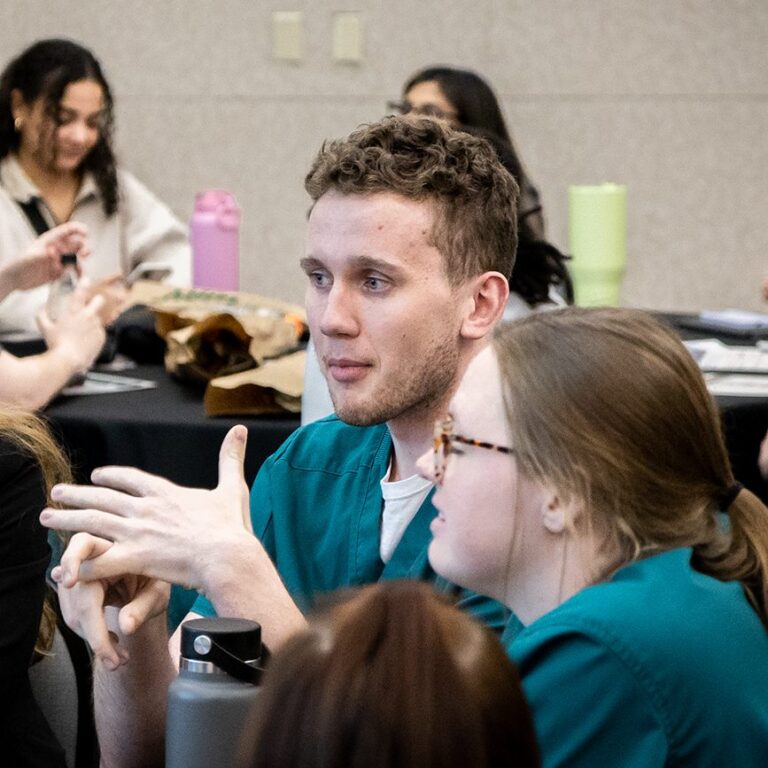
Patrick Scoggins, a first-year student in the medical school's physician assistant program, learned how to empathize with patients during a recent simulation training. He and other students participated in the Centers for Disease Control and Prevention (CDC) Foundation's “Health in a Box” asthma module. This module allows participants to discuss the social factors that influence overall health and the impact healthcare providers have on patients. Beyond their treatment.
“When we think of a patient's support network, we often think of the nuclear family, but they think it's their responsibility and that they're powerless. But over time, we think of solutions. If you think about it, you can solve so many problems,” Scoggins said. “The more support we have, the more change we can make. It is important to emphasize that making these connections is necessary to empathize with patients. I think it's important. It's not just about promoting drug treatment, it's about knowing all the factors that are contributing to their environment and understanding the full picture, how much they can afford, where they can get these resources. It's about understanding it from the ground up. It all helps their cause.”
This exercise is part of a larger series of modules called Health and Well-Being for All. According to the CDC, the series is designed to educate current and future health care providers about how potential health issues impact patients and the community. The program incorporates data cards, group dialogue, and facilitator tips to facilitate the process of leading change.
This was the first time that UT Health Science Center students were able to participate in one of the CDC Foundation's modules. Students had the opportunity to look beyond the surface-level causes of limited health care access for low-income patients. “I think it's really important for us as healthcare providers to learn this, especially because some of us don't have that background,” said fellow first-year physician assistant. Regan Rushing said. “I know that I myself don't come from the situation that was discussed, but it's great to understand how some of the things we talked about can dramatically impact someone's health. I understand how important it is.”

“Whether you like it or not, you are a leader,” Jess Guthrie, assistant director of leadership and services at the UT Health Sciences Center, told students during the module. As the exercise facilitator, Mr. Guthrie helped participants understand how to actively make change.
“This crash course takes what they already know about the social determinants of health and puts it into action,” she says. “Influencing change in a community requires working with the community, not just within it. How do you identify people who are worried about the same things as you? Better understand their perspective How can we bring like-minded people together and move in the same direction toward the same goal?”
Students participated in a variety of role-playing activities, one of which had students play the role of a health system employee. The students' goal was to convince each other why the organizations they represented should contribute to improving the standards of health care in low-income settings. “I thought it was a really great approach to learning about the social determinants of health,” said Isaac Johnson, a physician assistant student.


